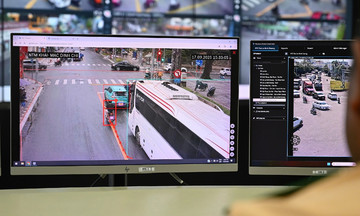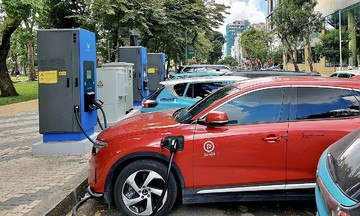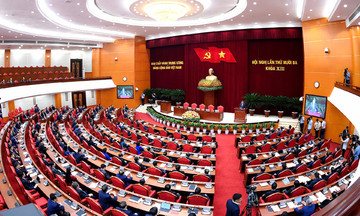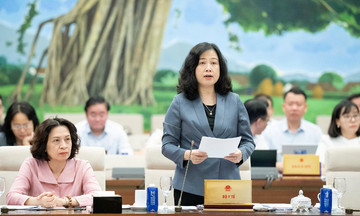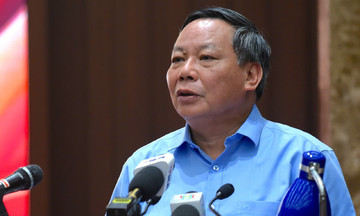On 16/9, the Politburo and the Secretariat held a national conference to disseminate four resolutions, including Resolution 72 on several breakthrough solutions to strengthen the protection, care, and improvement of people's health.
Presenting at the conference, deputy prime minister Le Thanh Long emphasized that the resolution affirms that people's health is the primary goal, motivation, and political task, as well as the responsibility of the entire political system. "Every citizen is cared for to live long, healthy, and wholesome lives," he said, affirming that this is an important foundation for the country to develop civilized and prosperous in the new era.
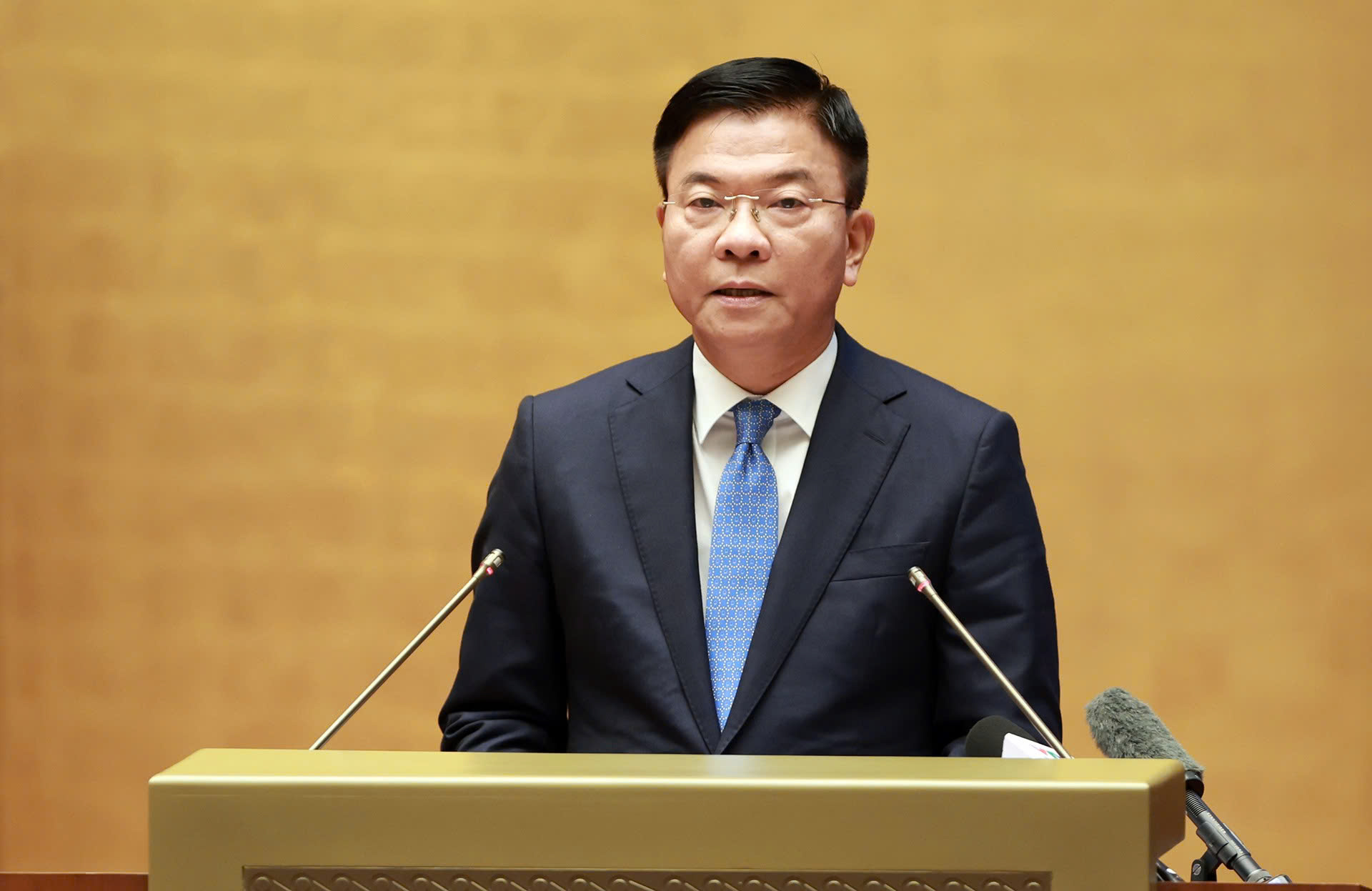 |
Deputy prime minister Le Thanh Long presenting at the conference on the morning of 16/9. Photo: Hoang Phong |
Deputy prime minister Le Thanh Long presenting at the conference on the morning of 16/9. Photo: Hoang Phong
According to the deputy prime minister, Resolution 72 inherits the Party's viewpoints on health and population work but has some breakthrough highlights. The focus is on renewing thinking, shifting from focusing on building large, specialized hospitals to investing heavily in grassroots healthcare, primary healthcare, and disease prevention. A comprehensive healthcare network covering the entire country will help reduce the burden on hospitals as people can be examined and treated at the grassroots level.
"Every year, April 7 - world Health Day - will become National Health Day, as a reminder of the importance of training and disease prevention from an early age," the deputy prime minister said.
The resolution identifies five guiding viewpoints, notably placing people at the center, valuing training and treatment of health workers, mobilizing all resources, promoting science and technology, digital transformation, and healthcare finance reform. Six groups of solutions are proposed, including renewing thinking, perfecting institutions, improving the capacity of preventive and grassroots healthcare, developing human resources and medical ethics, reforming healthcare finance, making breakthroughs in technology and digital transformation, along with mobilizing socialization, encouraging private healthcare, and public-private partnerships.
The goal by 2030 is for the average life expectancy to reach 75.5, the minimum number of healthy life years to be 68, and the average height of adolescents to increase by at least 1.5 cm. Health insurance coverage will reach over 95% by 2026 and reach universal coverage by 2030. People will receive free periodic health check-ups or screenings at least once a year from 2026 and have electronic health records managed throughout their lives.
According to the roadmap to 2030, basic medical fees within the scope of health insurance benefits will be completely waived for citizens. Commune health stations will be invested with adequate facilities, equipment, and human resources, with each station having 4 to 5 doctors by 2027, increasing the rate of health insurance examination and treatment at the commune level to over 20%.
By 2045, the State aims for a healthy society, a high-quality living environment, an average life expectancy exceeding 80 years, the number of healthy life years over 71, and the stature and physique of young people equal to those in developed countries. The healthcare system will be modern, equitable, efficient, sustainable, and prioritize disease prevention.
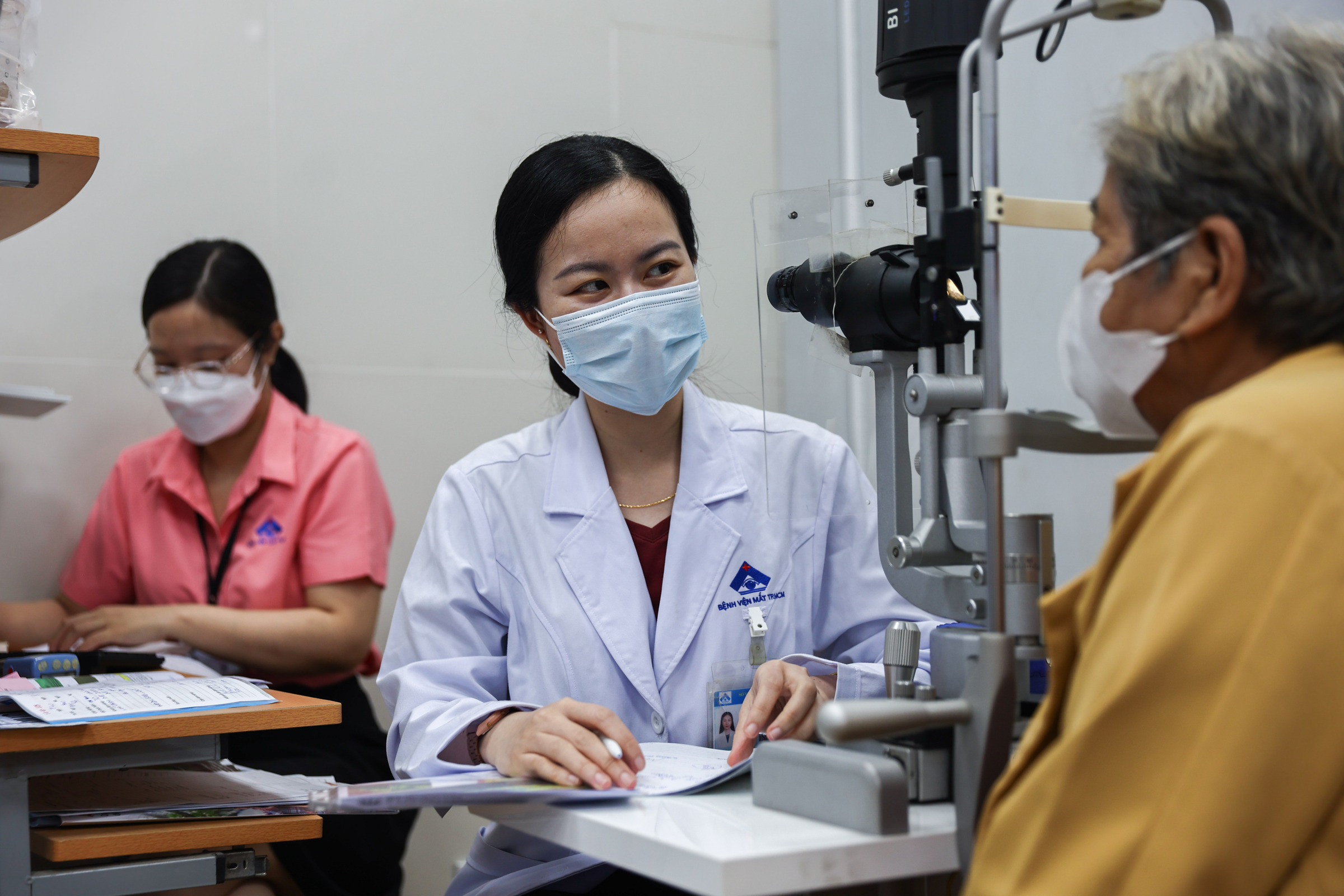 |
Doctors and medical staff at a Ho Chi Minh City eye hospital examine patients, July 2025. Photo: Quynh Tran |
Doctors and medical staff at a Ho Chi Minh City eye hospital examine patients, July 2025. Photo: Quynh Tran
According to the deputy prime minister, the Government has developed an Action Plan to implement the Resolution following the principle of six clarities: clear person, clear task, clear responsibility, clear authority, clear time, and clear results. Ministries, branches, and localities must issue specific plans by November 2025, linked to communication work, emulation movements, commendation, and supervision. The National Assembly, the Fatherland Front, and other organizations are assigned to supervise and provide social criticism. The National Assembly will also consider a thematic resolution and a national target program on health and population for the period 2026-2035 to allocate sufficient resources.
"The Government has balanced the budget for major policies," he affirmed. Accordingly, with occupational allowances, the budget is expected to spend 4,335 billion VND annually to increase the support level to 70% or 100% for grassroots health workers, preventive medicine workers, and those in difficult areas. The cost of periodic health check-ups for about 100 million people is estimated at 30,000 billion VND, of which employers pay over 4,800 billion VND, and the rest is paid by the budget.
The policy of waiving basic medical fees under health insurance could cost the budget an additional 21,500 billion VND per year, but with the health insurance fund currently having a surplus of 49,000-50,000 billion VND and a roadmap for fee adjustments, the State is capable of balancing in the initial phase and has long-term solutions.
"This is a policy that needs to be applied cautiously, but we have calculated it relatively carefully and can balance it in the coming time," the deputy prime minister said.
He affirmed that Resolution 72 is the result of careful discussion within the Politburo, with many revisions to accurately reflect the country's current situation and capabilities. In the fields of health and education, "even a small change in policy costs thousands of billions of dong, so it must be calculated very carefully."
"This is an important turning point, creating a shift from treatment to primary care, while affirming the Government's determination to improve the quality of life of the people, for a healthy, civilized, and prosperous Vietnam in the new era," deputy prime minister Le Thanh Long said.
Son Ha






